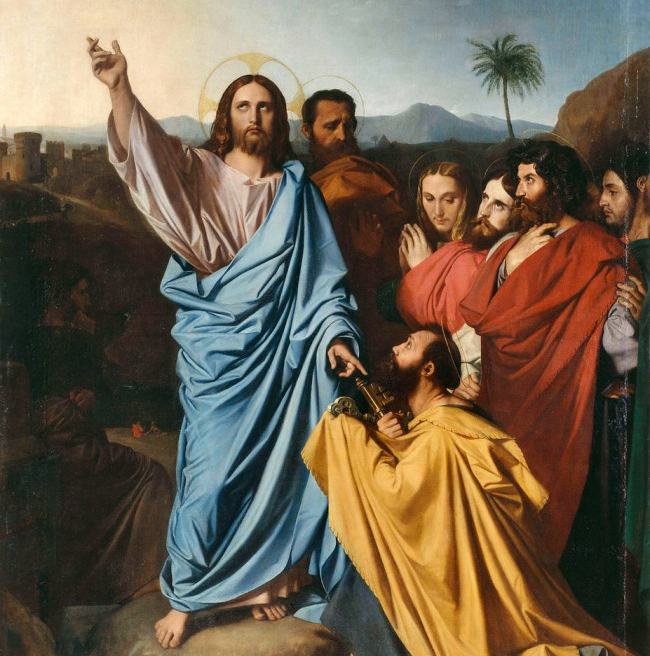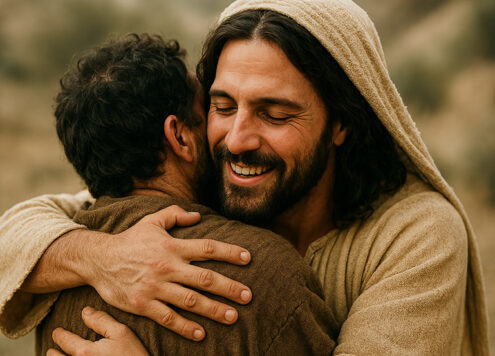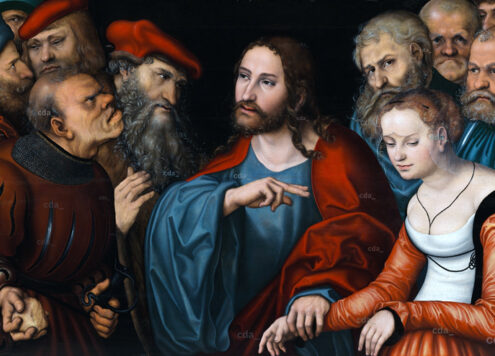—Matthew 16 : 16
There’s no clearer evidence for faith as a gift than the statement of Jesus in Matthew 16–17. When Peter made his declaration of faith, Jesus declared him “blessed” because Peter’s faith in Him did not come naturally as a creature of “flesh and blood”. Nor did it come of his own volition, nor was it derived from mental argument or exhaustive scientific research. It came to Peter as a gift from his “Heavenly Father” (Matthew 16:17).
In other words, faith is a gift of God.
We do not merit this gift, nor can we impose it upon others. It is the sort of gift that is meant to be lived because it imparts meaning and purpose to our lives. I have been privileged to write a book about this incredible gift, titled: What is This Thing Called Faith?
The beauty of this gift is that it renews, not only those who have been chosen to receive it, but it gives courage and hope to those who experience it’s power and effectiveness. Have you noticed how several speakers at the funeral of John Lewis paid tribute to his faith which was like a shield protecting him, enabling him to persevere and walk the walk in spite of beatings and persecution? The faith of John Lewis, not only renewed him, it also gave him the strength to change, for the better, the world and society in which he lived.
St. James says that “faith without good works is dead” (James 2:14). The good works he was talking about here were not “the works of the law”, but the healing works of love which Christ suffered and died for. Faith, for St, James, was an active word. It does not lie dormant in the deep recesses of the soul. It is up and about and ready to act the way Christ acted to help our fellowman in need.
A bell is not a bell ’til it is rung. A song is not a song ’til it is sung. Faith is not a gift ’til it is lived.
When we declare our faith in Jesus as the Son of the living God, we are committing ourselves to live like Him, to do as He says. Before leaving this earth, Jesus said to His followers: “a new commandment I give you, love one another as I have loved you” (John 13:34–35). This love of Christ is not something abstract or unattainable. It is real. And, we will be judged by it on the last day.
In Matthew 25, Jesus explains what He expects of us by means of a parable. It is called the parable of the last judgment. We will be divided, Jesus says, into two groups like sheep and goats. The sheep (the faithful ones ) will be on the right whereas the goats (the unfaithful ones) will be on the left, and this is how the Lord will address us. “I was hungry and you gave me food; I was thirsty and you gave me to drink; I was naked and you clothed me; I was homeless and you gave me shelter: I was sick and you comforted me: I was in prison and you visited me.” Then, the Lord goes on to say that the unfaithful will ask: “when did we see you hungry or thirsty or naked or homeless or sick or in prison?” The Lord’s surprising answer: “whatsoever you do to the least of my people, that you do unto me” (Matthew 25:40).
Not every Christian, regrettably, follows Jesus’s new commandment, but those who do (and we’re all commanded to do so) are heroic witnesses to the power of faith and God’s love for all His children. Some time ago, a little nun from Dresden, Germany, Sr. Ruth Pfau, who was also a physician, passed away in Muslim Pakistan. She was honored with a state funeral. Why? Because she was a walking example of the faith that saves. She took care of people with leprosy in Pakistan, effectively eliminating the threat of this terrible disease there and spread her work into Afghanistan. Muslims loved and accepted her wherever she went because she had no other purpose, no other agenda than to do as Christ commanded: “whatsoever you do to the least of my people you do unto me.”
Good example is the best witness to the gift of faith. It is also the best form of ecumenism for it unites, as one, people of different persuasions and beliefs. The Holy Spirit goes where it wills, and this gift of God is not to be pidgeon-holed for it is for all people of good will to renew the face of the earth.
May our faith be a living gift that transforms, by faithful witness, our own lives as well as the society in which we live.
—Fr. Hugh Duffy











2 Comments
Paulette Leonard
Father Duffy Matthew 25 is my favorite parable, it speaks so strongly about social justice. I use it in all my religion classes to illustrate that “faith” is an action verb! Thank you again for an inspirational beginning to my day.
Hugh Duffy
Faith is an action verb. Nice comment, Paulette.